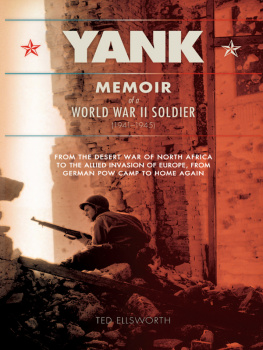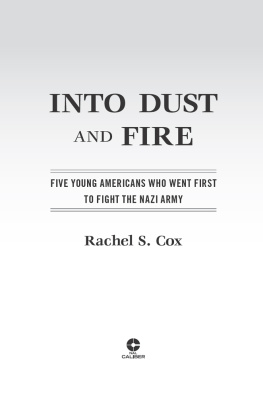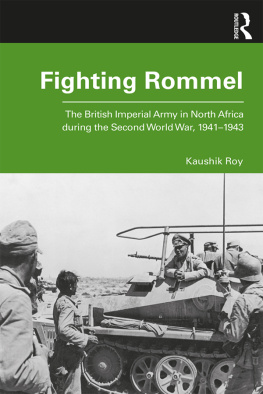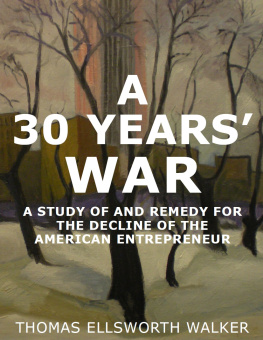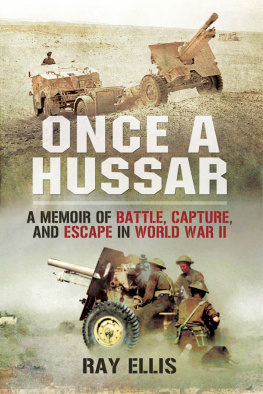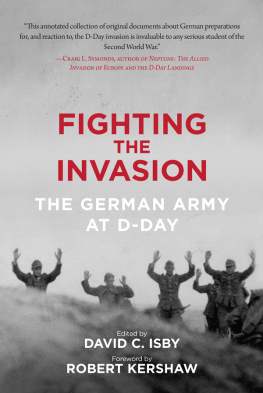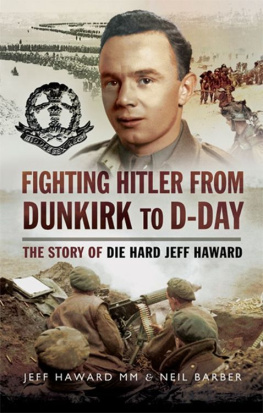This book was written in 1945. Every effort has been made to retain its historical flavor and to remain as faithful as possible to the authors original prose. Certain phrases that may be unfamiliar to contemporary readers have not expanded upon within the text itself; however, the publisher has added an endnotes section to explain and expand upon any possibly unfamiliar references.
Foreword

It was sunny and warm on the Dartmouth College Campus in June 1940, and we seniors waiting for the graduation exercise known as Commencement had nothing to do but sit in the sun and talk. Ted Ellsworth was next to me. We discussed potential jobs and wondered what we would do next. We read the newspaper. Two stories in the New York Times that month had been galvanizing. The first was a wake-up call. It began, Since dawn, the fate of France and perhaps of the Western world has been in the hands of Godand the French army. The sun rose at 5:02. The second came two weeks later: Adolph Hitlers mighty men in armor100,000 strong in the advance guardturned westward last night on a new tangent: the English channel as their goal.
Quite suddenly talk about post-graduation jobs ceased. What was ahead? What should we do? We turned from the newspapers to the radios in our dorm rooms and there we listened to the voice of Winston Churchill:
... even if, which I do not for a moment believe, this island or any large part there of should become subjected and starving under the heel of the conqueror, then with the aid of the British fleet and from our empire beyond the seas, we shall carry on the struggle until in Gods good time, the new world with all its power and might shall come forth to the aid and rescue of the old.
Both of us decided to join the British Army. Ted Ellsworth and I had been close friends and companions since the seventh grade in Dubuque, Iowa. He was and had always been a fascinating and charismatic figure, always at the center of things, from football games to escapades, always laughing, always the life of the party, always ready for new adventures. Together we climbed the bluffs along the Mississippi River, boasted about good-looking girls, rode our bikes through cornfields and together we decided to join the British Army.
After the war, we kept up with each other. Ted returned to the bluffs of Dubuque, Iowa, to raise his family and start a business. I went on to publish a newspaper in Oceanside, California, and begin a career as a syndicated columnist, author, and television news commentator. That was some time ago. I am eighty-eight now and my good friend Ted has been gone for twenty years.
Id like to tell him, Ted, you captured it, thank you! In all the years of our friendship there was one thing I never knew about him: I never knew he could write. However, Ted Ellsworth, a hero in battle, writes about battle brilliantly, amusingly, and factually. You will find this out in the pages that follow.
Tom Braden, 2005
Prologue

Nov. 15, 1944
2712 Reynier Ave.
Los Angeles, Calif.
My darling Teddy,
This is the first opportunity I have had to write since that dayat least to write alone. And now I have the courage to do it. I feel sure that some day you will read this letter, and that is why I am writing it. Not just because I want to get something out of my system.
It was while I was talking on the phone to Aunt Alice about 8:30 that Tuesday morning that Watt started to bark. He was up in my bedroom. That is the day the laundry man comes, so I excused myself for a moment, thinking that it was he coming up the drive. But, instead I saw Daddy and Uncle Clifford, and I started to shake. It could only mean bad news. But I went back to the phone and listened to Aunt Alice though I couldnt tell you to this day what she was talking about.
I was still shaking but I mustered enough strength to gaily say, Well, what brings you two up here at this hour of the morning?, hoping against hope that my intuitions were wrong. Missing-in-actionthey are agonizing words but at least there is hope in them. And that is what I am doinghoping and counting and praying for your return from this mess some day. I know you will come back to me, darling. You must come back to me.
And so I cried on Daddys shoulder, and your dear little Watt knew something was wrong, because I suddenly felt his paws on my shoulders and his nose in my neck. He has grown since you went away. I turned around to pet him and make him feel a little better. And, too, I felt sorry that Uncle Clifford had to go through this, after losing Bill. I had another cup of coffee and a cigarette and dried my tears. We phoned Mother who was in Grand Rapids. We got them out of bed, and they were stunned. Mother wanted to come home right away, but I persuaded her not to.
Then Daddy and I drove to your house. We walked in the front door because it was open and found Uncle Clark at breakfast. I left Daddy with him and went upstairs to see your Mother. She cried, but she was very brave, too, and after a while I went home. The word got around town and the phone rang continuously and Aunt Alice and Uncle Philo came over, and it was bedlam. I didnt get any of the housework done. I intended to write you that day, but I couldnt.
Carol and John urged me to go to Moline with them, when they took John down to catch his plane. I wanted to get away from the house, away from the phone, and away from the doorbell. So Watt and I went to Moline, and it was a beautiful day. Watt and I sat in the back and comforted each other. At the field he was amazed at the planes and kept his eyes on them every minute

